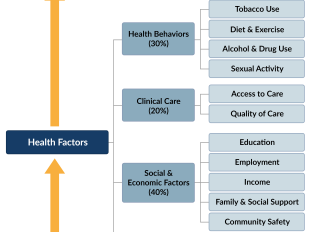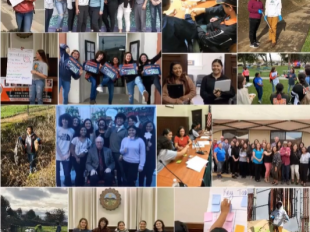Massachusetts’ Rise to the Top: How This Year’s Healthiest State is Building a Culture of Health at the Community Level
In the recently released America’s Health Rankings, Massachusetts was the healthiest state in the country, moving from second in 2016 to first in 2017. For almost 30 years, the America’s Health Rankings Annual Report has served as the longest running annual assessment of the nation’s health on a state-by-state basis. Similar to County Health Rankings & Roadmaps, America’s Health Rankings evaluates a comprehensive set of health, environmental and socioeconomic data to determine national health benchmarks and state rankings.
Massachusetts isn’t just America’s healthiest state, it’s also the state with the most Robert Wood Johnson Foundation (RWJF) Culture of Health Prize winners: Cambridge, Fall River, Everett, Lawrence and Chelsea. The RWJF Culture of Health Prize recognizes communities across the country that are bringing partners together to create solutions that put good health within everyone’s reach. Each Prize community is selected because they are defining health in the broadest possible terms; committing to sustainable systems changes and policy-oriented long-term solutions; cultivating a shared and deeply-held belief in the importance of equal opportunity for health; harnessing the collective power of leaders, partners, and community members; securing and making the most of available resources; and measuring and sharing progress and results.
Though each Massachusetts Prize community has distinct strengths, challenges and approaches to change, all the communities demonstrated how they are empowering residents to lead healthy, prosperous lives:
Cambridge won the Prize in 2013, in part, because of their focus on improving health equity and addressing challenges such as obesity and school readiness for their diverse community.
Fall River, another 2013 winner, sought to reduce youth violence; help high school dropouts develop job skills; and worked alongside their youth to implement a successful citywide ban on tobacco sales in pharmacies.
Everett, a 2015 winner, zeroed in on ensuring all residents—especially it’s rapidly growing immigrant population—have access to high quality jobs that pay livable wages and connecting newcomers to vital health and social services.
The Family Resource Center in another 2015 Prize community, Lawrence, focused on improving the conditions that affect education outcomes by connecting parents with school-age children to a wide range of essential community and school resources that address social, academic, health and economic challenges.
In 2017 winning community, Chelsea, the newest addition to the state’s Prize communities, residents—including many youth—improved their environment and health by reducing diesel fuel emissions and reclaiming the waterfront.
These Massachusetts communities are part of a bigger community of Culture of Health Prize winners, both regionally as part of the Northeast Prize Winners’ Forum they helped found and nationally. To learn more about the Massachusetts Prize winners and the other 30 Prize communities throughout the nation, visit rwjf.org/Prize. For more on America’s Health Rankings, check out https://www.americashealthrankings.org/.
The RWJF Culture of Health Prize is a collaboration between the Robert Wood Johnson Foundation and the University of Wisconsin Population Health Institute.


